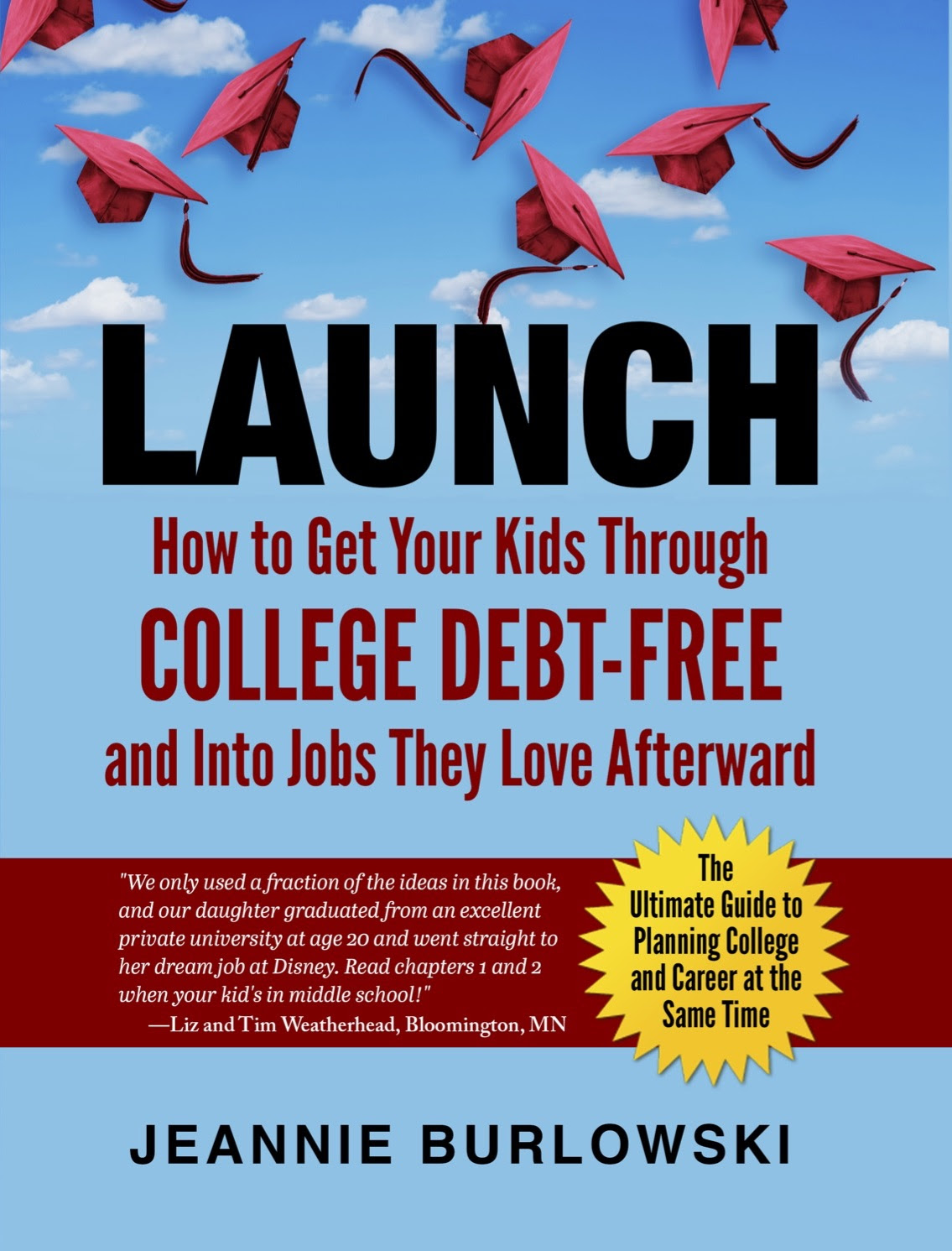You’ve heard that your local community college can save you thousands on college bills due to lower tuition costs. But could community college hurt your kid’s future career prospects? What if your daughter wants to get a master’s degree someday? Or a Ph.D.? Will having community college on her transcript hurt her chances of being admitted to grad school? To medical school?

Research from the NSC Research Center shows that 20% of those who earned master’s degrees in the year their research examined started out in community college. And fully 21.5% of doctoral-research degree earners in health and clinical sciences started out in community colleges just like the one down the street from your house.
In my own work with law, medical, business, and grad school applicants at GetIntoMedSchool.com, I’ve never once seen community college hurt a student’s chances of being admitted to even very highly competitive grad school programs. One top 20 med school told me, “Oh, we are fine with students taking first year Biology and Chemistry in community college. A lot of times, they actually learn more there.”
Read on to learn how your child can get through community college at the lowest possible cost.
What kind of a degree do community college students earn?
Community college students can complete their freshman and sophomore years of college and earn two-year associate’s degrees while proving their ability with real college-level coursework. (This is especially helpful for students who, for one reason or another, did not do well academically in high school.)
Successful community college students may be offered merit aid scholarship money—free money that need never be paid back—from four-year universities that are eager to bring in slightly older students who’ve proven themselves with college-level work to replace younger students who’ve dropped out.
How can our daughter take classes at a community college for free?
Google the name of your state and the words “community college for free.”
Do this now. You need to know what’s available to your family.
My son’s not the strongest student. How can we help him succeed in community college?
Students who want to make sure they succeed in community college should seek out every academic support service provided there.
Good questions to ask are:
“What are my professor’s office hours? I’m going to go in and talk to her every time I have a question about what was covered in class.”
“Does this college have a math center where I can get help with math? What about a writing center where I can get help writing “A” level papers?”
“Where can I get one-on-one tutoring if I need it?”
“What other academic support services are available to me at this particular community college?”
What must I know before my child starts community college?
First, some community college students will earn two-year associate’s degrees and then stop their higher education at that point. Registered nurses, for example, can be licensed and hired for nursing jobs that pay $93,600 (national median salary) or more per year after earning two-year associate’s degrees and nothing more. Many other students, though, will want to transfer their community college credits to four-year colleges where they will take enough additional credits to earn 4-year bachelor’s degrees.
Second, students who want to go on to earn master’s or doctoral degrees as soon as possible after they finish their bachelor’s degrees are advised to start the process of applying to master’s and doctoral programs in January of their junior year of college. (Approximately 19—20 months before they intend to start grad school.) It’s also completely OK to wait and attend grad school later.
FMy free article where I help students get their grad school paid for is here.
Here’s the most important thing you need to know about this process: it takes just a little strategy to be sure that every community college credit will successfully transfer to that four-year college—nothing wasted.
How can my child make sure that each of his community college credits will eventually transfer to his four-year university?
Make use of these four strategies:
1. Figure out early on which four-year college your child will probably attend eventually. Chapters 13 and 14 of my book, LAUNCH: How to Get Your Kids Through College Debt-Free and Into Jobs They Love Afterward, will give you specific guidance on exactly how to do this.
2. Each semester before registering for community college classes, contact the registrar at that four-year college and ask, “If I take these specific community college classes, will I be able to easily transfer them to your institution? May I have that in writing, in the form of an articulation of transfer agreement?
3. If your son’s already earned an associate’s degree from a community college and he’s just now shopping around for the four-year college where he’ll finish up his bachelor’s degree, have him ask prospective four-year colleges this question: “Will you allow me to block transfer my associate’s degree to your institution?”
A “block transfer” will allow your son to transfer all his community college credits in one large chunk, without the four-year college sniffing and saying, “We’ll take some of your community college credits, but not all of them.” If a four-year college refuses to block transfer the associate’s degree, simply wave goodbye and go find one that will.
4. While you’re talking to the registrar at the four-year university, ask this question: “I know that most students coming from community college transfer approximately 60 credits to your institution. Is there a way that I could transfer in 72 credits instead, and still not have even one credit wasted?” Because the community college classes typically cost less than four-year college credits do, this strategy can result in significant cost savings for families.
Can my child get federal financial aid to help pay for community college?
Oh, yes.
Every student planning to attend community college should use the FAFSA form to apply for federal financial aid to help pay for it. To learn why, read every word of my article 7 Reasons to Fill Out the FAFSA Form Even If You’re Rich.
Remember, choosing the right college, checking on transferring, and wisely applying for financial aid are only a small part of the picture when it comes to getting your kid through college debt-free.
For clear, step-by-step help with the whole process from beginning to end, get your copy of my book:
Important—> It’s a reference book, so nobody reads the whole thing cover to cover. Pick out what you need to read in it using the fast-paced, 10-minute video instructions here.
You can see hundreds of reviews of this book on Amazon by going to:
Read just one chapter of LAUNCH every 1–3 months while your child’s in middle school and high school, and you’ll know every viable strategy for debt-free college at exactly the right time to implement it.
And if your child’s already well past middle school? That’s OK; you can run to catch up. But the process of getting your kids through college debt-free goes more smoothly the earlier you start—especially if you’re not planning to save up any money to pay for college.
Let's you and I walk together toward the goal of debt-free college for your kids.
We can accomplish this no matter your current income level—even if your kids never get a single scholarship.
Your first step is getting regularly scheduled, free helpful articles from me—right in your email inbox. Quick, sign up here.
Do you have very specific questions for me about debt-free college and career for your kids?
My TRIBE Members get the most direct access to me—while feeling good that the pennies per day they spend on the TRIBE help me bring debt-free college strategy to families who could never afford to pay for it. Join my TRIBE Membership waiting list here.
Who is Jeannie Burlowski?
Jeannie is a full-time academic strategist, podcast host, and sought-after speaker for students ages 12–26, their parents, and the professionals who serve them. Her writing, speaking, and podcasting help parents set their kids up to graduate college debt-free, ready to jump directly into careers they excel at and love. Her work has been featured in publications such as The Huffington Post, USA Today, Parents Magazine, and US News & World Report, as well as on CBS News.
Jeannie also helps students apply to law, medical, business, and grad school at her website GetIntoMedSchool.com. You can follow her on Bluesky @jburlowski.bsky.social.
No part of this article was written using AI.
This article was updated on September 3rd, 2025.


